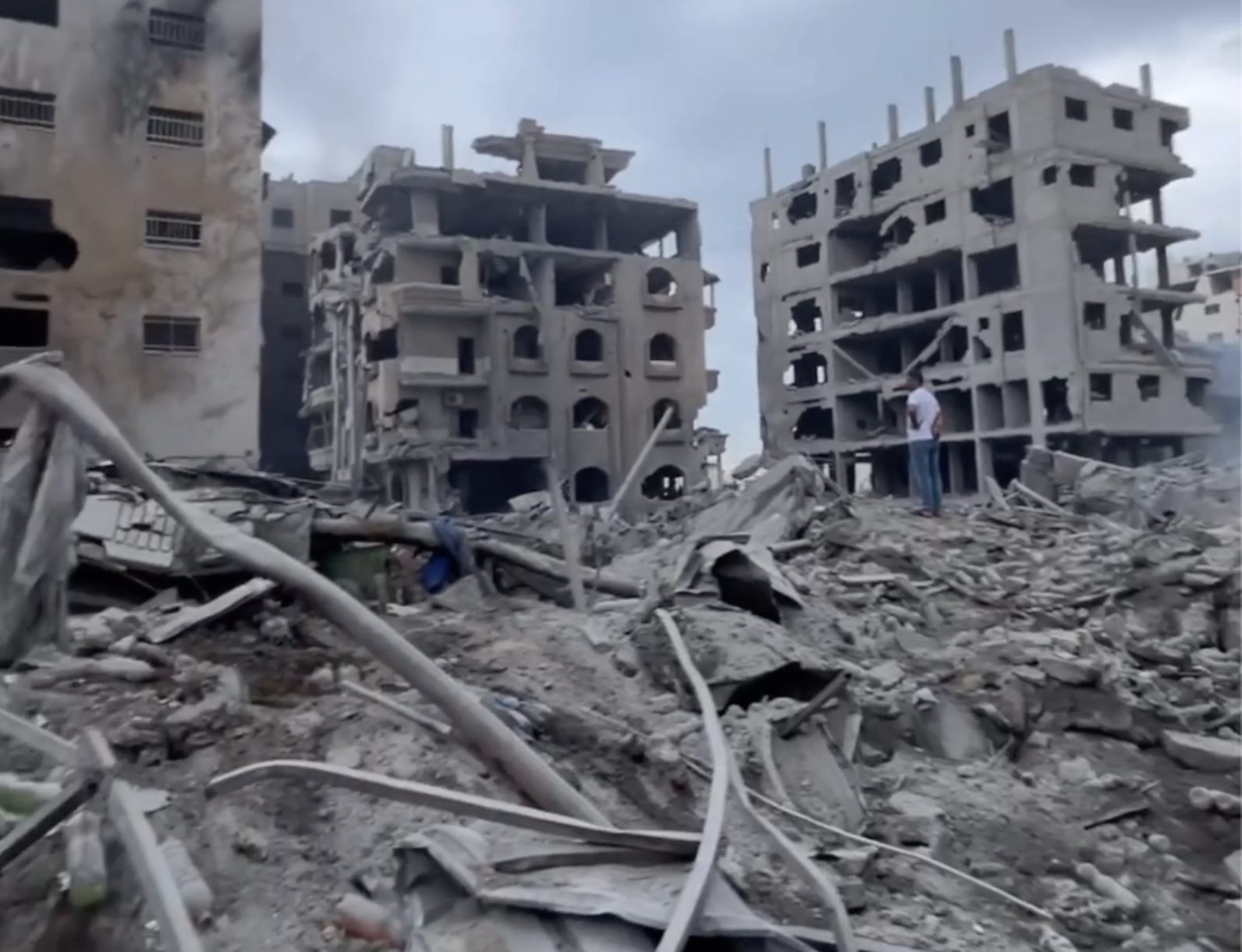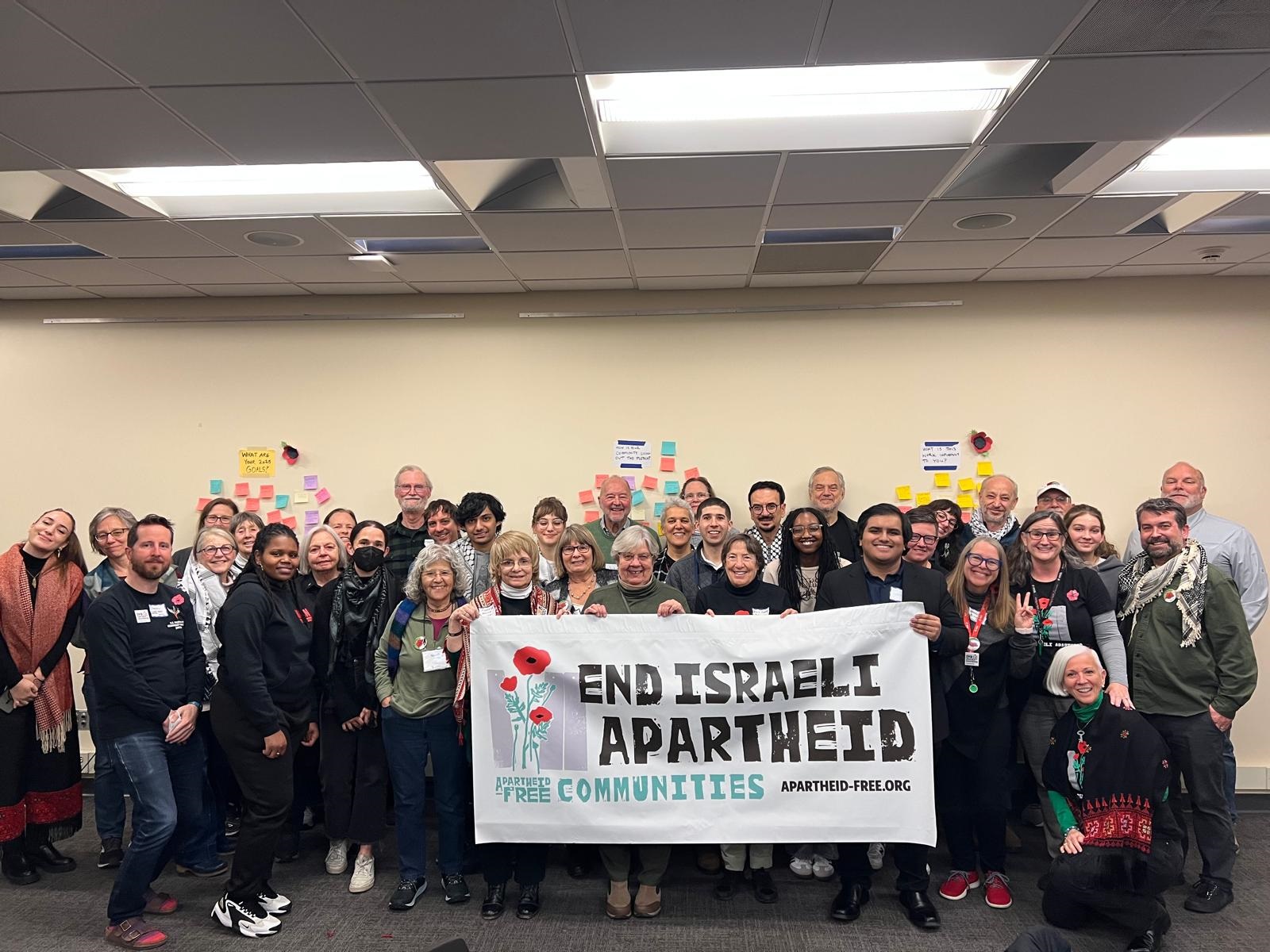
A gathering of Apartheid-Free Communities groups in Philadelphia.
Many people of conscience are looking for ways to support Palestinians facing genocide in Gaza. Since October 2023, the Israeli military has killed tens of thousands of Palestinians and displaced more than 90% of the population.
Although a ceasefire was declared in October 2025, Israel has repeatedly violated the agreement, killing hundreds more Palestinians since. Israel also continues to severely restrict food, water, medicine, and humanitarian aid to Gaza. Still, the U.S. government continues to send weapons to Israel and offer political support.
Gaza’s 2.3 million people have long faced violence and suffocating conditions imposed by Israel and upheld by the international community. For over 17 years, Palestinians in Gaza have lived under Israel’s brutal blockade, isolated from the rest of Palestine and the world. Prior to 2023, more than 50% of Palestinians were unemployed, and over 80% relied on humanitarian relief to survive.
Today, we must renew and strengthen our efforts to change these realities. Here are six ways you can support Palestinians in Gaza today.
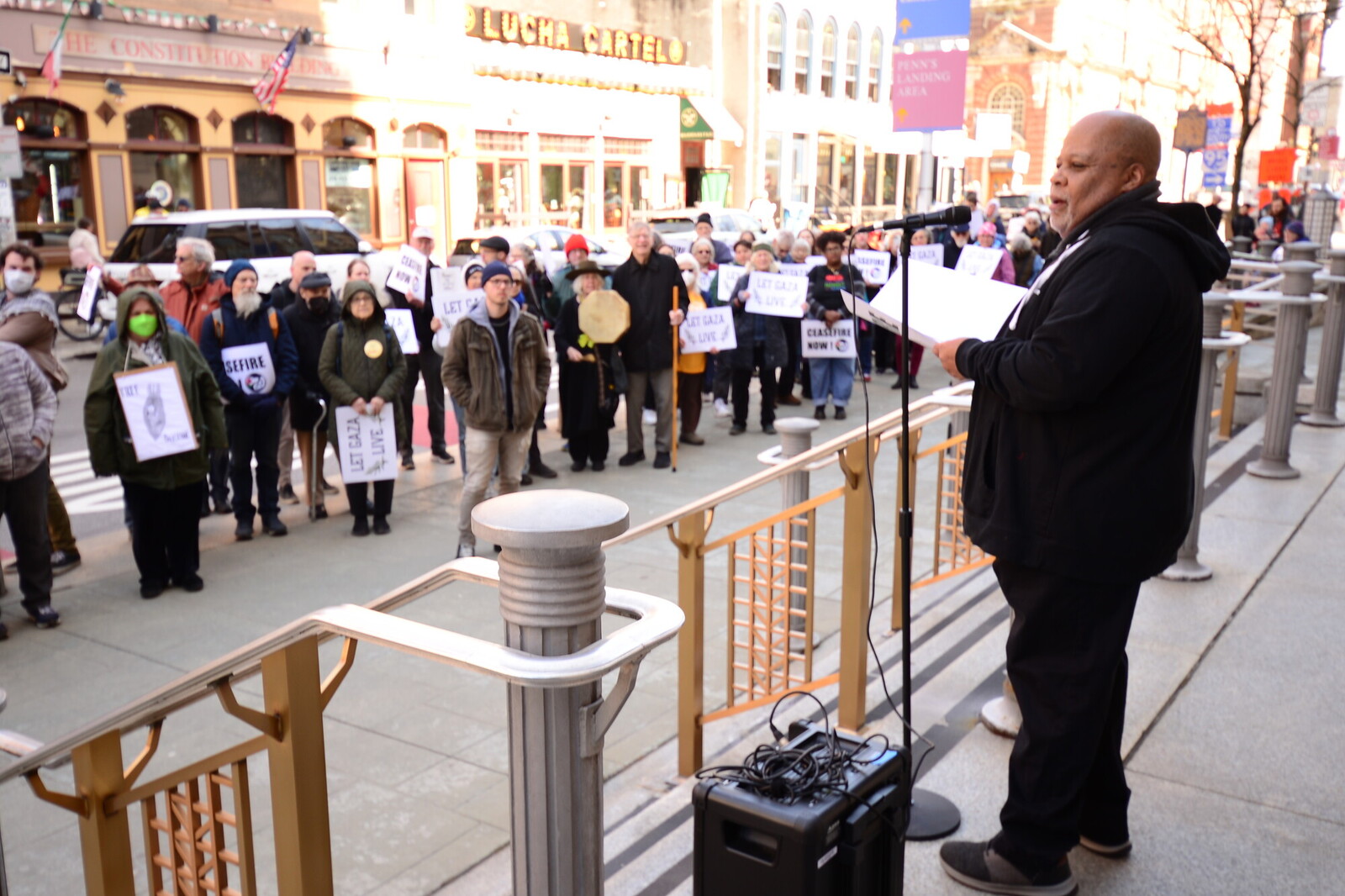
In Philadelphia, community members took part in a teach-in and vigil in front of Sen. John Fetterman's office. Photo: Robert Boucher
1) Connect with your member of Congress.
Tell Congress to support an arms embargo and to end all military funding to Israel. Urge them to insist on full humanitarian access and adherence to human rights laws. Our elected officials must keep hearing from us! Send a message.
- Join AFSC online for our weekly Action Hour for Palestine. Every Friday, we’ll share updates from AFSC’s staff from Gaza, tips for advocacy, inspiring protest actions, and then make calls and write letters to Congress. Register today.
Check out these guides to:
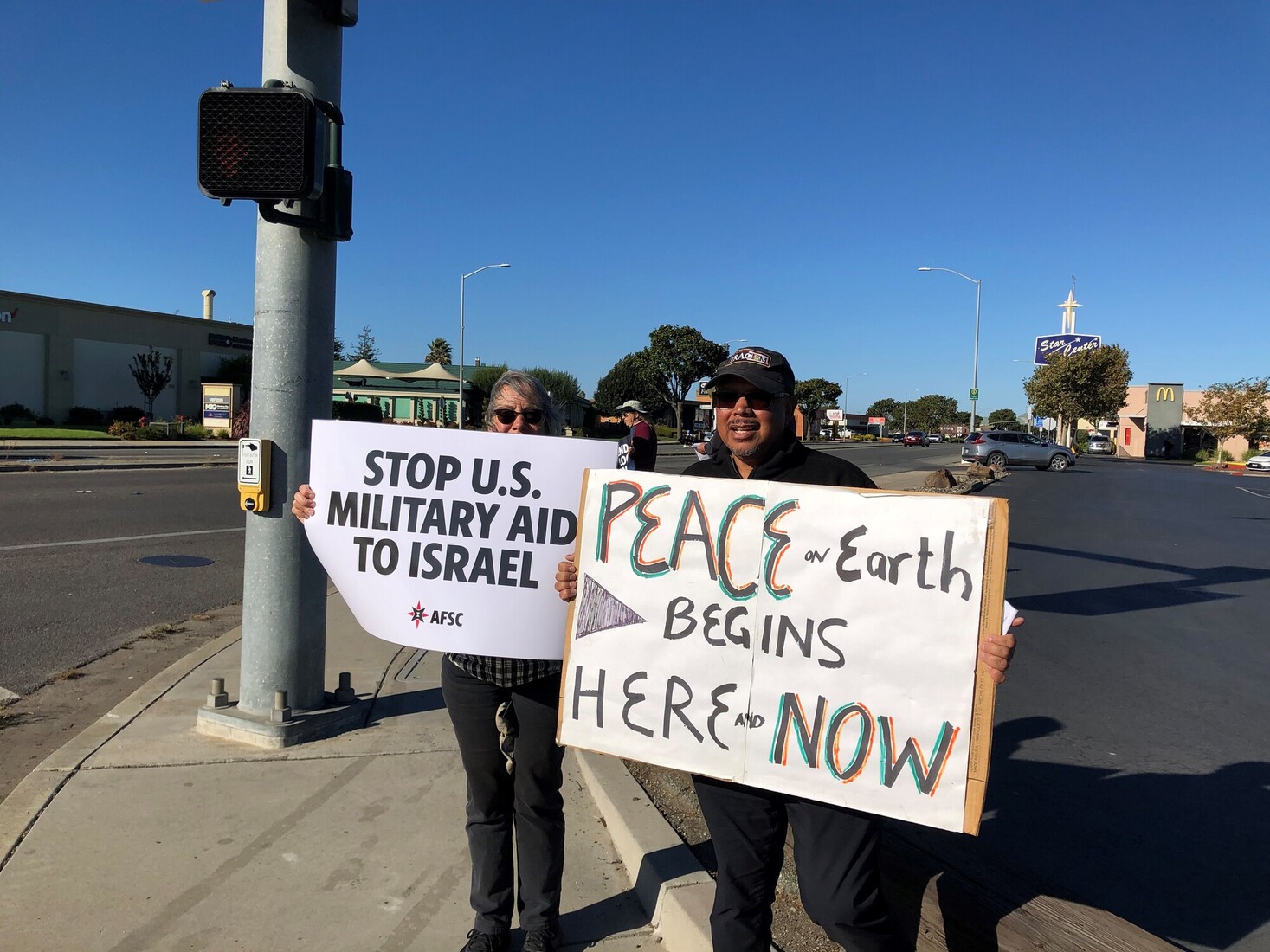
Members of Live Oak Friends Meeting in California protest for Palestinian rights. Photo: Kathryn Mizuno
2) Bring attention to what's happening in Gaza.
- Take part in protests. Marches, rallies, and vigils are a powerful way to publicly demonstrate solidarity with Gaza. To make your message loud and clear, download and print our free posters for Palestine. You can also read AFSC’s resources on peaceful protesting.
- Write a letter to the editor. This is an effective way to show support for Gaza, counter harmful media narratives about what's happening, and add context that news outlets often miss out on. Use these letter-writing tips.
- Find more organizing resource guides and subscribe to the monthly newsletter produced by AFSC’s U.S. Palestine Activism program.
- Read the statement issued by eight Quaker organizations, including AFSC, that discern genocide is happening in Gaza and urge courageous action. Endorse the statement and share it in your community.
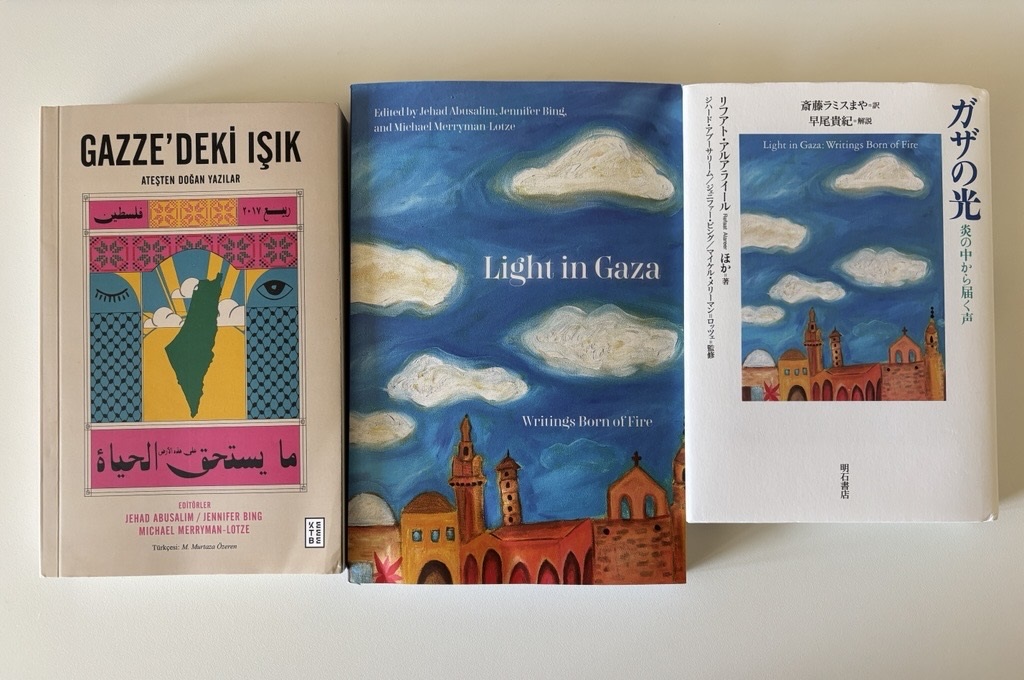
"Light in Gaza" has been translated into multiple languages since its publication. Photo: Mike Merryman-Lotze/AFSC
3) Learn more about Gaza and lift up Palestinian voices.
Order our book “Displaced in Gaza: Stories from the Gaza Genocide” published by Haymarket Books in September 2025. Help raise global awareness about the violent and forced displacement inflicted upon Palestinians in Gaza. Each of the 27 stories featured in this book is unique, yet the endurance of the Palestinian people remains a common thread, linking stories of hope and loss together.
Read “Light in Gaza: Writings Born of Fire.” This anthology features work by 12 Palestinian writers who imagine the future of Gaza beyond the cruelties of occupation and apartheid. For a limited time, you can download the e-book for free. You can also listen to online conversations with “Light in Gaza” contributors and organize a group in your community to read the book. Use our study guide to help facilitate discussions.
Check out articles by AFSC staff, including:
- Yousef Aljamal’s articles on Palestinian deep connection to the land in Gaza, on farmers and food sovereignty, facing genocide while living with disabilities in Gaza, and grieving family members killed in Israeli airstrikes.
- Articles by Serena on how she is experiencing the genocide in Gaza in April and in July 2025.
- Watch a documentary “Lifelines: Aid Workers in Gaza” that follows the work of our AFSC staff in Gaza in the fall of 2024.
- An article by Zoe Jannuzi on creating community through AFSC’s weekly Action Hours for Palestine.
Check out our list of resources about Gaza, and seek out news coverage from outlets with Palestinian journalists reporting from Gaza, including the Electronic Intifada, Middle East Eye, Mondoweiss, and Al Jazeera.
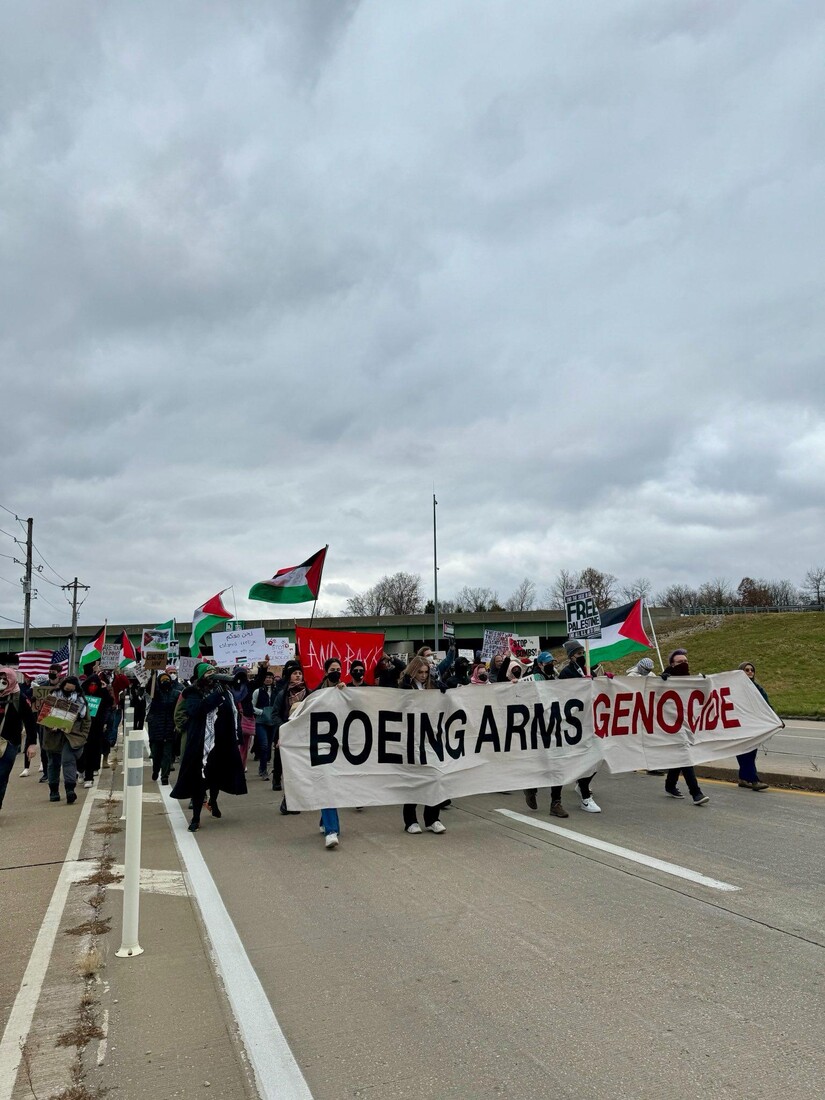
In Missouri, protesters demonstrate against Boeing, one of the companies targeted for divestment because of its role in the genocide. Photo: Sara Bannoura
4) Hold corporations accountable for their role in violating the rights of Palestinians in Gaza.
This war is enabled by the U.S. military industrial complex, as was the case with Israel’s previous attacks on Gaza.
However, that is the tip of the iceberg. Many U.S. corporations are involved in Israel’s apartheid regime and other routine human rights violations against Palestinians. Ensure your money is not contributing to human rights violations—and call on these companies to end their complicity in apartheid and war crimes.
Visit AFSC’s site for divestment resources, including a list of companies for divestment, and information on how to start a divestment campaign.
To scan a mutual fund or a list of holdings for their exposure to companies on the divestment list, use AFSC’s Investigate database and investment scanner.
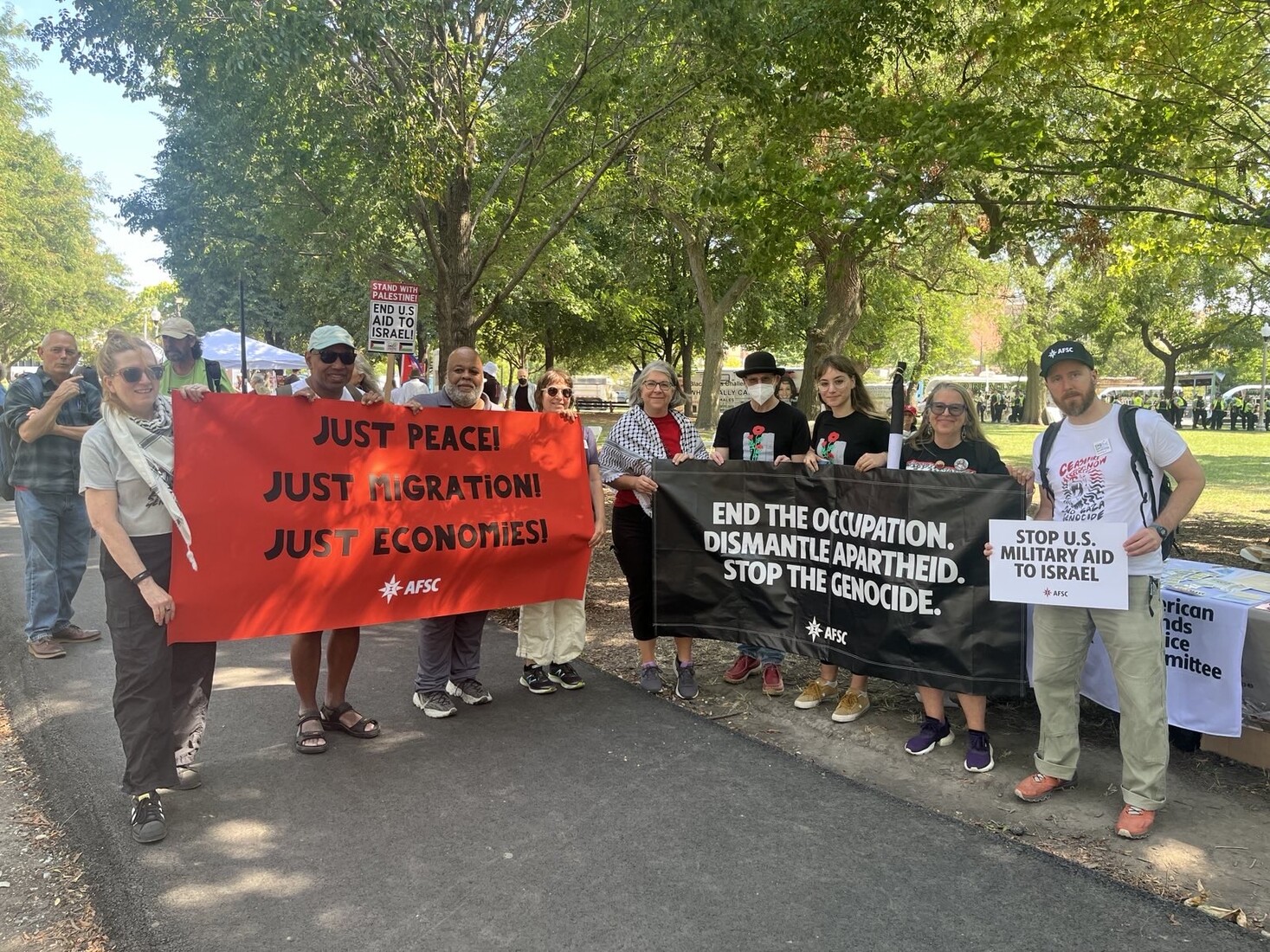
Photo: Melissa Stoner/AFSC
5) Join us in working to dismantle Israeli apartheid.
In 2023, AFSC and partners launched the Apartheid-Free initiative. Over 700 faith communities, groups, and organizations, have pledged to call themselves “Apartheid-Free” and join others in working to end all support to Israel’s apartheid regime, settler colonialism, and military occupation.
Use the resources on the Apartheid-Free website and sign up to receive our monthly newsletter to get involved and help build a movement for a world where all people are equal and treated with dignity and respect. See videos for more information about the struggle to end apartheid, including from leaders in Palestine.
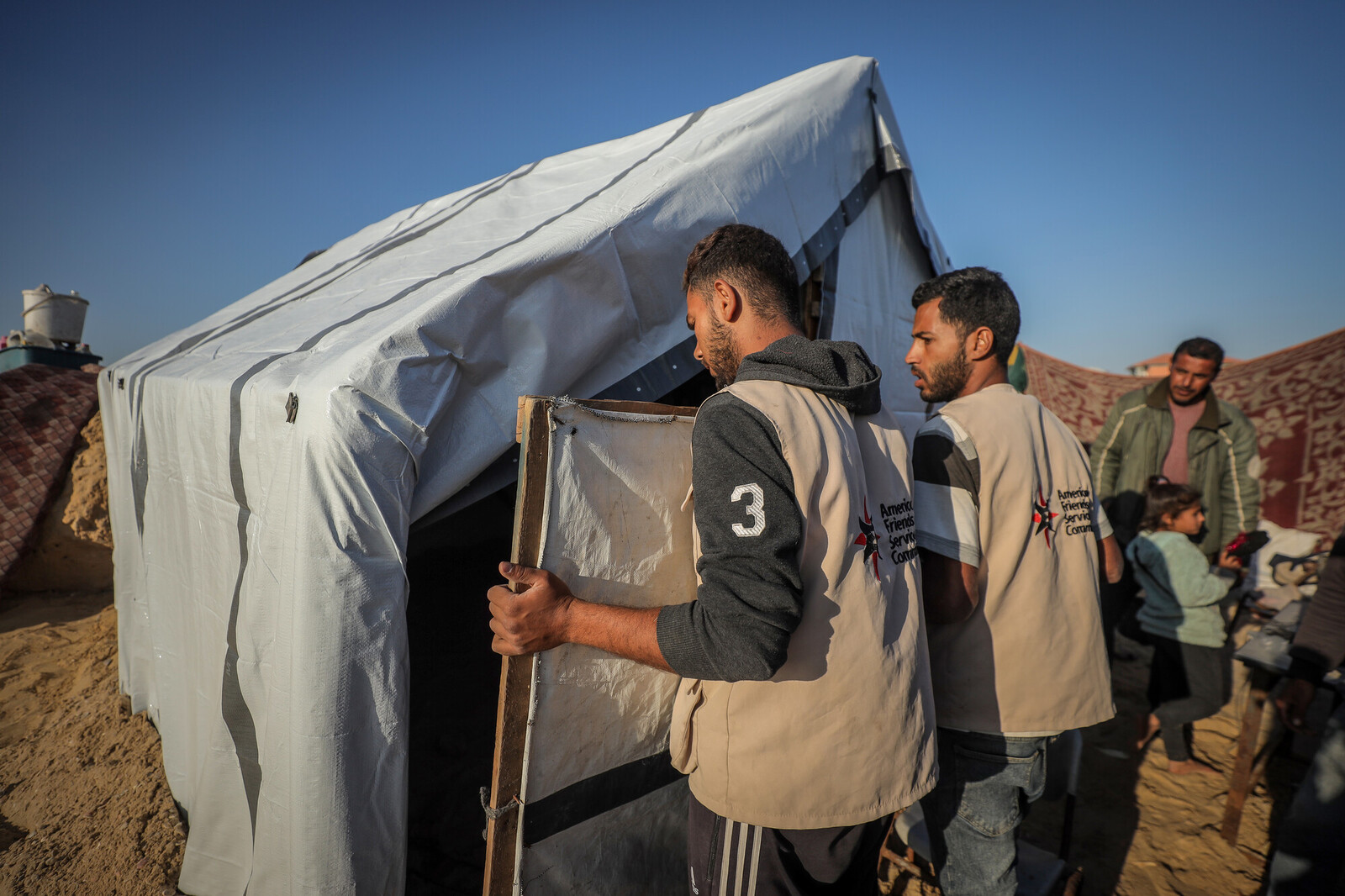
AFSC's team in Gaza repairs a shelter for a displaced family. Photo: Amjad Al Fayoumi
6) Make a gift.
- Donate to support AFSC’s emergency relief in Gaza: Your donation will bring humanitarian relief and support efforts to stop the violence and build conditions for peace.
- Support AFSC’s advocacy for Palestinian rights. Help fund our ongoing work with communities across the U.S. to bring about peace, justice, and human dignity for all people.
- Plan a fundraiser to support our relief efforts in Gaza.
